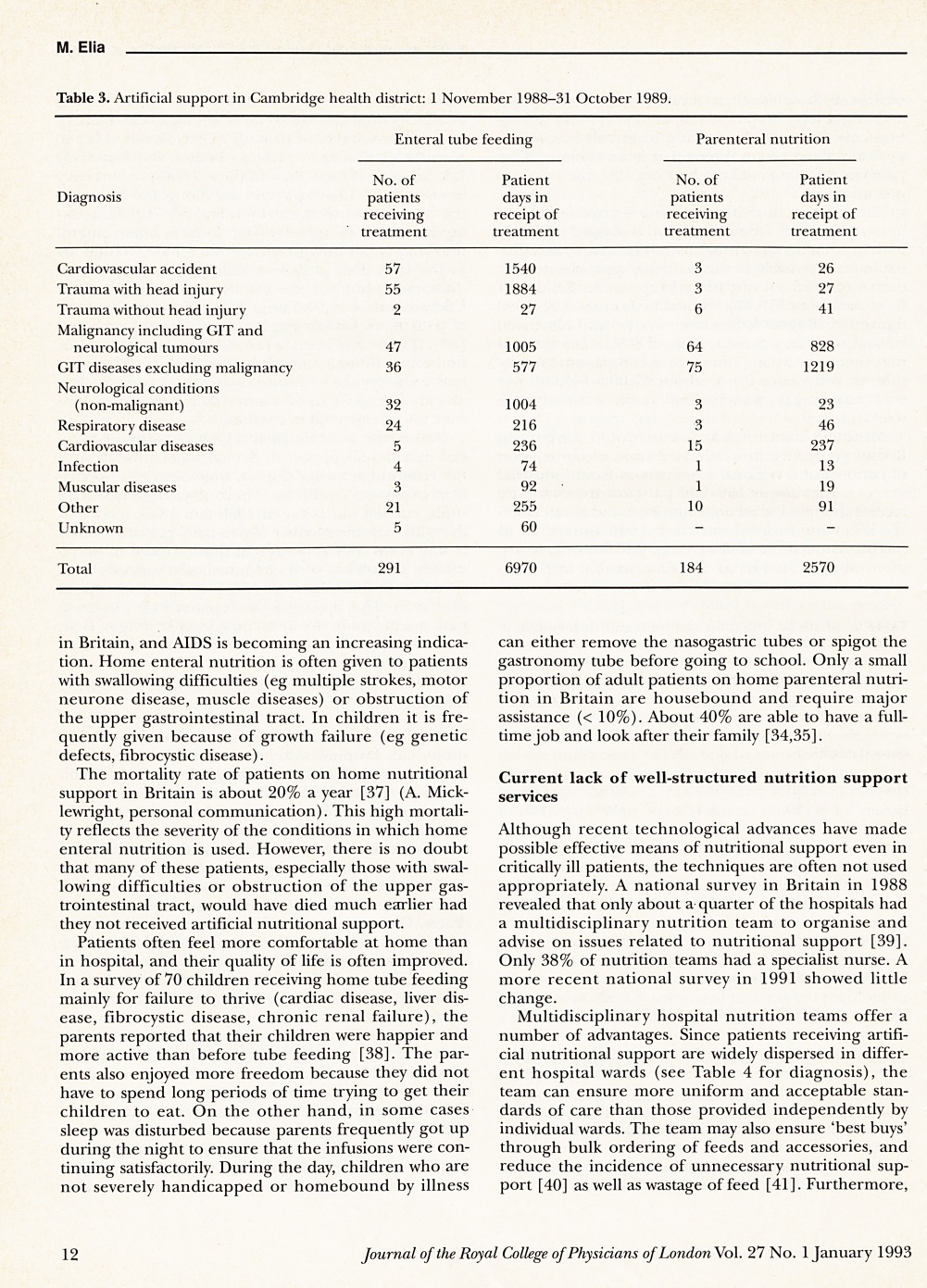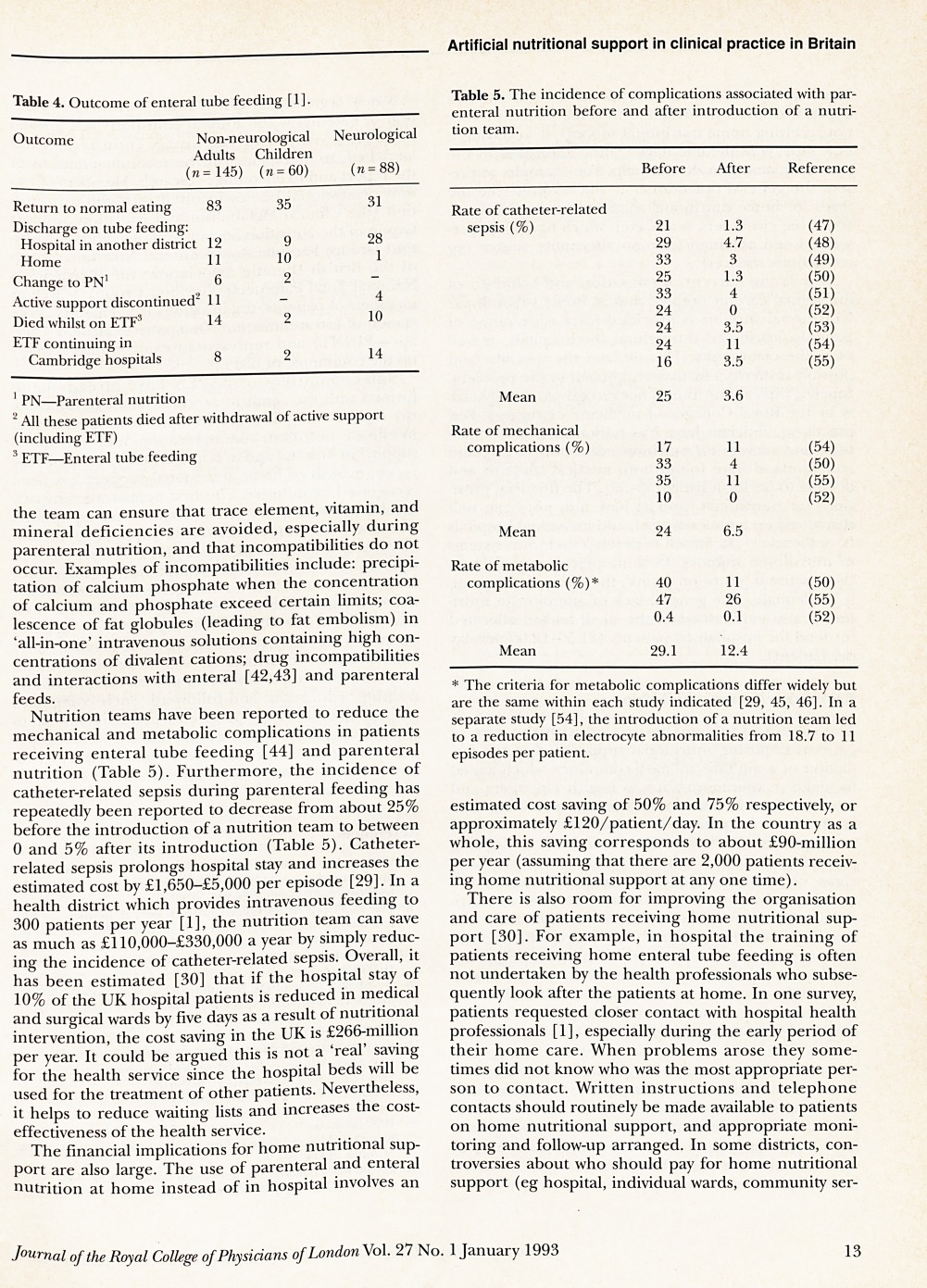Abstract
Malnutrition is common in hospitalised patients. It often develops insidiously and its diagnosis is frequently delayed or missed. A multidisciplinary nutrition support team can improve the quality of nutritional support, reduce inappropriate feeding, reduce the complications associated with enteral and parenteral nutrition, and so improve clinical outcome and reduce hospitalisation. These improvements have obvious financial advantages, yet only a minority of British hospitals (25–30%) has a nutrition team. The increasing use of parenteral and enteral nutrition at home, which represents one of the most important areas of recent developments in artificial nutritional support, also has financial and clinical advantages, but the management of such patients is also less than optimal. Better education and greater awareness of nutritionally related problems, as well as changes in the local and national infrastructure of nutrition support services, are required to improve the quality of care and the clinical outcome for patients being treated by parenteral and enteral nutrition in hospital and at home.
Full text
PDF









